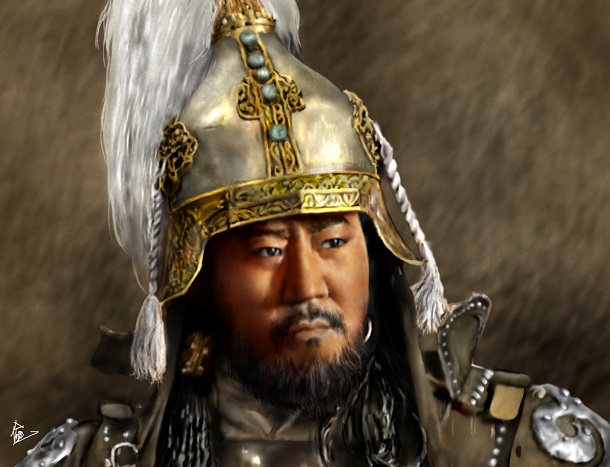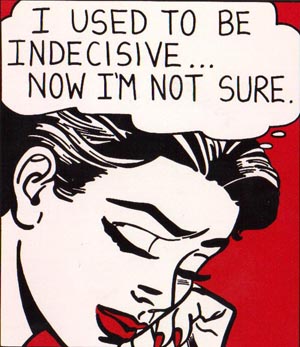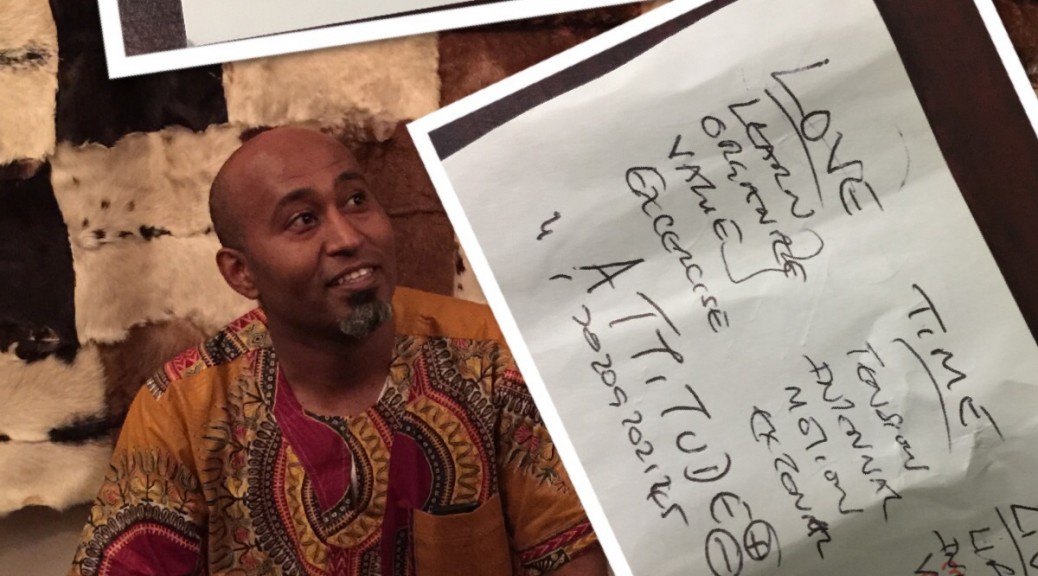Genghis Khan. A CEO? You’re having a laugh.
One of the most deeply feared figures in history. Actually maybe we can put him in the Banking sector, as one of the regulators, to sort out the mess other banking directors have been creating.
On a serious note, what can we learn from Genghis Khan as a leader of people? This post is full of a synopsis of fascinating history and leadership lessons we can learn.
In 1162, in a tribe in Mongolia, Genghis Khan was born. In those days, a tribe was just made up of a few hundred people, living in tents in the middle of nowhere, probably in the low grounds of the mountain ranges.
At just nine years old he lost his father, the Chief of the tribe, who was poisoned by another rivalled tribe. He sat crying next to his father’s dead body and watched his mother weep. In that moment, he transitioned very quickly from a boy to a man.
On the realisation of the death of the Chief, all the men in the tribe left. Leaving behind women and children, including young Genghis. For nine years they had to fend for themselves. And at 18, as tradition had it, he travelled to a fellow tribe and exchanged gifts, in return for marriage and a wife. Genghis was said to be smitten by his bride.
Only a few days after his marriage, they were attacked by a rival tribe and as was the case in those days, the men were killed, riches stolen, tents burnt and women taken as prisoner.
Genghis and his blood brother (a name described to a friend treated as a proxy to a real brother) with a few other tribes men, decided to flee. Watching, riding in to the distance, as his newly wed wife was being captured and his tribal home lit up in flames.
He swore revenge.
Genghis visited a fellow tribe, who was his father’s blood brother when they were children although they had lost touch. After identifying himself, explaining his story and offering gifts, they formed an alliance and the armies set off together for retribution against the earlier imperious raid.
He managed to win back his wife and in the process destroyed any trace of the assailant tribe members with fervour. With this victory and the burning fire of pain still residing within his heart, Genghis’s quest for further expansion of his empire began.
How did a nine year old boy, having lost his father, end up ruling an empire of almost 12 million square miles? His empire, to put into context, was four times the size of Alexander the Great and twice as large as the Roman empire.
Genghis had asked the literate members of his tribe to document each strategy and win, so we are able to have first person accounts of this unrepeated history.
So how did he do it? Because he understood people.
As he continued winning battles other tribes men would approach him and ask to join his tribe. And so his army expanded.
But why did they stay with him? His thinking was not conventional. He did away with old traditions where only the linage of tribe chief’s would be rewarded senior positions in his tribe rankings.
Instead, he awarded members in his tribe based on their ability and loyalty.
When you join a new employee workforce, you also do join a type of tribe. Do you currently work in a company where you see promotions happening because someone ‘knows’ someone? Directors or Managers promoted all seem to be chummy and good friends? Although this motivates some ie those that are chummy, it leaves other employees demotivated. Employees realising ability and meritocracy are not the key drivers for promotion. This causes fractions of disengagement and disloyalty among employees, just as it would dangerously among an army base. Genghis understood this.
As always, a power struggle soon ensued. His blood brother, also a great and highly respected warrior, who Genghis had known since early childhood was now turning against him and wanted to be the sole leader of the tribe. Genghis was not interested in going against him but knew tensions had been rising.
Eventually, his blood brother broke away from the tribe and left with his loyal followers to develop his own tribe.
In a later battle, his blood brother’s army was strong and attacked Genghis’ men. However, Genghis had a formidable force himself and battle strategies conducted with precision. The blood brother lost the battle but survived and escaped with only a few of his men.
A few days after the battle, from the horizon approached the blood brother on horseback with his hands handcuffed behind his back accompanied by the blood brothers’ two most senior Generals. The blood brothers’ own two Generals had betrayed him.
Expecting a reward from Genghis Khan, the two Generals instead, to their surprise, were ordered to execution.
Genghis highly valued loyalty and this wasn’t selectable. This was demonstrated in his actions to his own tribe, by ordering the execution. Here it was the principle of loyalty that was important. The application of the principle showed integrity to his own men, not empty words or selective actions. The outcome was increased credibility and trust. Everyone knew where they stood with this leader. So they felt even more engaged.
Senior management today may talk a lot about certain objectives and values that their organisations should follow. How many of these are merely good intentions? Having a good intent is not always enough. Do we actually see these values actioned? How many companies do you know that talk about customer services as one of their key values are willing to actually lose some shareholder money sometimes to ensure customers are delivered the right product or service? Or willing to sacrifice a potential sale that could have meant that profit target was met this year, not because regulation tells them they have to but because they genuinely want to build their business that way? Do companies always walk the talk?
Furthermore, what can we say about a leader (or company) who breaks his/her own word? A leader who’s actions do not match their intentions. Just as the blood brother was betrayed by his own Generals, employees will betray a company they do not trust or respect.
Genghis also valued his word. As any great leader would and he further demonstrates this. On the surrendering of his blood brother, who earlier had tried to attack him, Genghis still offered forgiveness. Citing that a good man can sometimes be wrong but should be forgiven. He wanted his blood brother to rejoin his ranks and once again rule together. No ego involved but what was more important was his word.
How many managers or leaders today in organisations are forgiving? Many will not accept the responsibility, ensuring the blame will put on those who fail. Not feeling like employees are able to make mistakes only kills creativity, loyalty and engagement. Do this enough times in an organisation, developing a blame culture and you will have an employee base that forget what their responsibilities are and only remember what their rights are.
Thomas Watson, the once Chairman and CEO of IBM, is encounted as having been convinced by a young executive in his Company to invest a $600,000 in to a new business venture. The young exec was intelligent, diligent and full of passion for the business. IBM took a risk and invested in his idea. Months later the idea completely failed and the young exec ordered to go and see Thomas in his office! Naturally, as we all would, shaking in his boots, the young exec entered Thomas’s office sheepishly asking if he will now be fired. Thomas turned to him and said “Why would we fire you, when we have just spent $600,000 educating you?”.
Genghis also knew his power will only grow as people who joined his tribe saw that he had a purpose. His purpose was clear, he wanted to rule the world and that was a big objective to work towards.
This required a lot of motivation to remind his men of the purpose. Before any battle Genghis would stop and turn to his men on the battlefield, with the enemy a few hundred meters behind him and give his men some heart felt words of inspiration. He would take an arrow and hold it in the air and remind his tribes men that one arrow alone can be broken easily. Just as one tribe alone can be defeated. But if they work together, and by grabbing a handful of arrows, he demonstrated how they were difficult to break.
He made each person feel individually important and valued, by reminding them of their role of forming a strong unit together.
Similarly, we can see what happens in Companies. Employees who do not feel valued at work or feel that their individual contribution is meaningless are less likely to be motivated to help the company reach it’s objectives.
If you give a plant, sun, water and mud. It will thrive. Give that to a dog and it will die. Good leaders should know what people need. People need appreciation to help them grow.
Genghis also knew money only had a certain impact on motivating people.
It was near impossible with his army to even think about attacking China. In fact, the then Chinese Emperor sent Genghis a message saying we understand you are progressing your army towards China:
“How can you even think about attacking our empire which is the size of an ocean, where as your men in comparison are like a splash in the ocean?”
The Chinese were one of the most sophisticated and wealthy economies of the time. They were so rich they were able to actually employ armies by paying money to mercenaries to guard the Chinese borders.
On a battlefield as both armies faced off each other head to head, as was the method in those days, Genghis knew that a mercenary paid to do a job is only as valuable as the pay he receives.
In exchange for wealth, the mercenaries joined Genghis’s army! They advanced through in to China and through the alliance also gained the strategies and routes used by the Chinese armies.
In today’s world we see a high turnover of employees in companies. If you get better pay doing a job that is similar to your current role, would you not leave? How much loyalty to the company does your pay buy you? Probably not much.
What if the company you worked for stood for a purpose? If they were trying to do things in a novel or ground breaking way and you wanted to be part of that movement? If you highly respected or even looked up to the character of the leaders? Would your loyalty to this company still change if you were offered more money to work in another company where these qualities perhaps did not exist? Maybe so, since we do have mortgages to pay, but you may stop and at least think twice. Or you may even return after leaving!
Finally, to summarise (naturally we can talk in great detail about this history) when Genghis Khan died, it is said all those involved in his funeral where themselves executed so that no one will know his final resting place. This is still the case today.
Perhaps he did not want people to worship his shrine? His purpose was to take over the world and although he did not achieve that completely, what was the purpose for wanting to take over the world? He was, nonetheless, a revolutionary for his time. He did grant religious freedom to his subjects, abolished torture, encouraged trade and created the worlds first postal system. Not to down play the horrific slaughtering in the course of his invasions, perhaps his character shows he wanted to reign the world not to boast about his success.
Do many leaders today want to change or rescue a company because they feel the company serves a purpose? Or is it more to say job well done and another boastful tick on the CV?
When leaders have a genuine desire to work in a company to leave it better than when they joined it, first prioritising serving customers and employees rather than shareholders, perhaps capitalism will be in a better place. This will create sustainable, long term profitable businesses.
If you’re interested in taking your company to the top of the FTSE 100, take some notes from Ghengis’s leadership style. My only advice is, just go easy on the executions along the way.
Share on Facebook



















